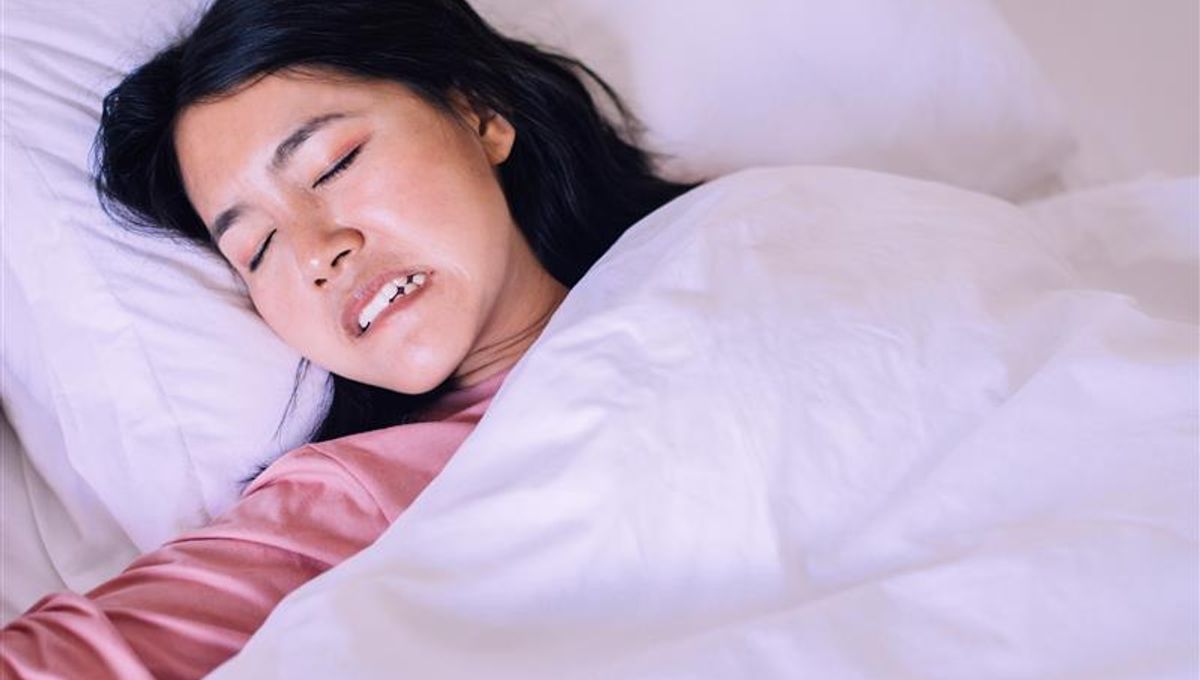
If you’ve ever shared a bed with someone who grinds their teeth in their sleep, you’ll be familiar with the unmistakable and unsettling sound of enamel on enamel. Alternatively, perhaps you’ve woken up with an aching jaw, only to be told by your partner that it was your grating dentition disturbing the peace in the night.
Also known as bruxism, teeth grinding is something that many people do from time to time. While the occasional scrape is unlikely to cause much harm, excessive and prolonged gnashing can lead to problems.
What Causes Bruxism?
Bruxism can be classified as either diurnal or nocturnal, depending on whether it occurs while a person is awake or asleep. Daytime grinding is considered a separate condition from night grinding, and is usually thought to be stress related.
Night gnawing, on the other hand, can be caused by an array of different factors, making it difficult to pinpoint the reasons for a person’s bruxism or decide on a treatment. One thing that is clear, however, is that the behavior is more common in children than in adults, with some estimates stating that up to half of all kids may grind their teeth in their sleep before growing out of it as they exit adolescence.
There have been surprisingly few major studies on the causes of bruxism in adults, with one literature review finding that the condition’s etiology remains unclear. However, the same paper did note that “faulty occlusion” – meaning a misaligned bite – appears to be a factor, as contact between the upper and lower teeth seems to influence the function of the jaw muscles.
Other causes include stress and anxiety, medications such as SSRI antidepressants, taking drugs like cocaine or ecstasy, and drinking too much coffee or alcohol. Other nocturnal disorders like sleep apnea – which refers to the inability to breathe properly while sleeping – are also associated with bruxism, although the mechanisms behind this link are unclear.
Is Bruxism Dangerous?
Most people who grind their teeth in their sleep don’t experience any negative consequences, although extreme bruxism can lead to pain and dysfunction in the jaw muscles – a condition known as temporomandibular disorder. The other major risk concerns the teeth themselves, which can get broken, chipped, or worn down if grinding is too frequent or vigorous.
Pain in the neck and face has been reported by some patients, while headaches and disrupted sleep are also associated with bruxism.
How To Stop Grinding Your Teeth
Unfortunately, there’s no proven fix or treatment for bruxism, although there are things that can be done to help. For instance, relaxation exercises and stress-reduction practices may be helpful, while other lifestyle changes involving diet and drug-taking can also make a difference.
If your bruxism is related to sleep apnea, then the use of certain devices that help keep the airways open may help to alleviate both conditions simultaneously. Other healthy sleep habits like going to bed at a regular time and ensuring your bedroom is dark and quiet are also believed to play a role in preventing teeth grinding.
In more extreme cases, a dentist may recommend the use of a mouth guard or splint to protect your teeth from becoming damaged at night.
However, with a lack of high-quality clinical trials involving treatments for bruxism, there’s currently no intervention that’s guaranteed to stop you from grinding your teeth in your sleep.
The content of this article is not intended to be a substitute for professional medical advice, diagnosis, or treatment. Always seek the advice of qualified health providers with questions you may have regarding medical conditions.
All “explainer” articles are confirmed by fact checkers to be correct at time of publishing. Text, images, and links may be edited, removed, or added to at a later date to keep information current.
Source Link: Why Do Some People Grind Their Teeth In Their Sleep?